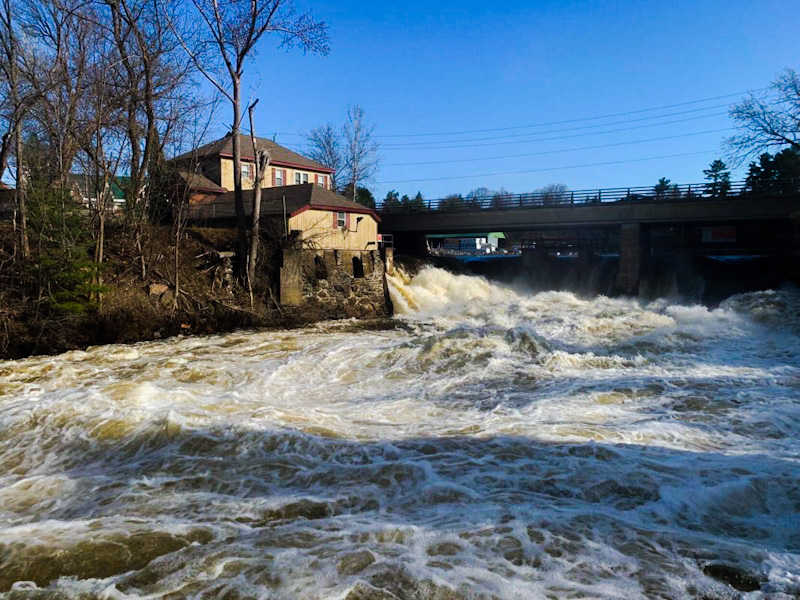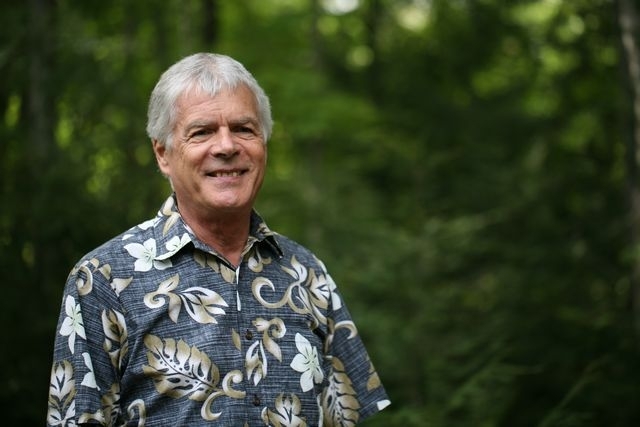Our Changing Watershed: Is it Time to Give the Muskoka River Legal Rights?
Shifting the balance between us and the rest of nature.
By Dr. Peter Sale.

The Muskoka River Watershed is mostly in very good health, and we are proud of how we take care of this place that gives us so much. We understand that our economy is intimately dependent on this iconic environment.
But there are problems.
Increasingly, the data reveal that our activities are harming our watershed. We spread tons of salt each winter that accumulates to harmful levels in our waterways. We aid the spread of invasive species while hampering the survival of native species. We are not sufficiently protecting vital ecological processes from the impacts of development. And we are changing the climate, altering our ecosystem in ways that are becoming increasingly problematic.
When push comes to shove, we usually favour our own short-term wants over the environment’s long-term needs. We say it’s important to keep our environment healthy, but we persist in undervaluing the environment and believing that our individual rights should always come first.
It’s time for a change! Because there is currently no mechanism for the environment to cry, “Enough already, stop killing me.” Without that mechanism, our watershed will continue to degrade. It’s now time to discuss giving our Muskoka River Watershed the rights in law that would let it speak back.
In 1972, law professor Christopher Stone published an article in the Southern California Law Review. His article became a book, “Should Trees Have Standing? Law, Morality, and the Environment” (third edition published 2010). In it, he argued that there is no legal impediment to granting rights to trees, rivers or any other part of nature. After all, non-living entities like corporations and municipalities have long been recognized as persons with rights under the law. They can enter into contracts or go to court just like you and me.
While still rare in North America, granting rights to nature has been done successfully elsewhere. Ecuador was the first nation to grant such rights. In its 2008 constitution, Ecuador granted nature rights to “exist, persist, maintain and regenerate its vital cycles, structure, functions and its processes in evolution.” Bolivia passed a law of Mother Earth in 2010 granting similar rights. More relevant to Muskoka was the action taken by New Zealand. It designated the Te Urewera forest (in 2014) and the Whanganui River (in 2017) as legal persons. Colombia recognized the Atrato River (2016) and the Colombian Amazon region (2018) as entities with legal rights. India granted similar rights to the Ganga and Yamuna rivers and the Gangotri and Yamunotri glaciers in 2017. In each case, human sponsors or guardians were appointed to act for the natural person, much as corporate lawyers act for corporations. As of 2023, 30 countries have “right of nature” laws or other legal documents in place or pending. In Canada, the Magpie River in northern Quebec is already a legal person, and a law granting that status to the St. Lawrence River is wending its slow way through Parliament.
Why not our Muskoka River Watershed? Sure, it sounds crazy at first, but granting the watershed the right to exist and to engage in its traditional processes shifts the balance between us and the rest of nature. That act would help us see that we are but one species sharing Muskoka with others, and sharing of space includes recognition of mutual rights. This shift in worldview is sorely needed if we are to manage our growing use of Muskoka’s environment into the future. We must manage for the benefit of the watershed and for ourselves, and this requires recognition of the natural rights of all parties. Otherwise, the watershed loses. What do you think?

This article is one of Muskoka Watershed Council’s summer 2023 series, Our Changing Watershed, in The Muskokan newspaper. This week’s contributor is Peter Sale, a member of and current chair of the Muskoka Watershed Council. The series editor is Neil Hutchinson, a retired aquatic scientist, Bracebridge resident and director of the Muskoka Watershed Council.
